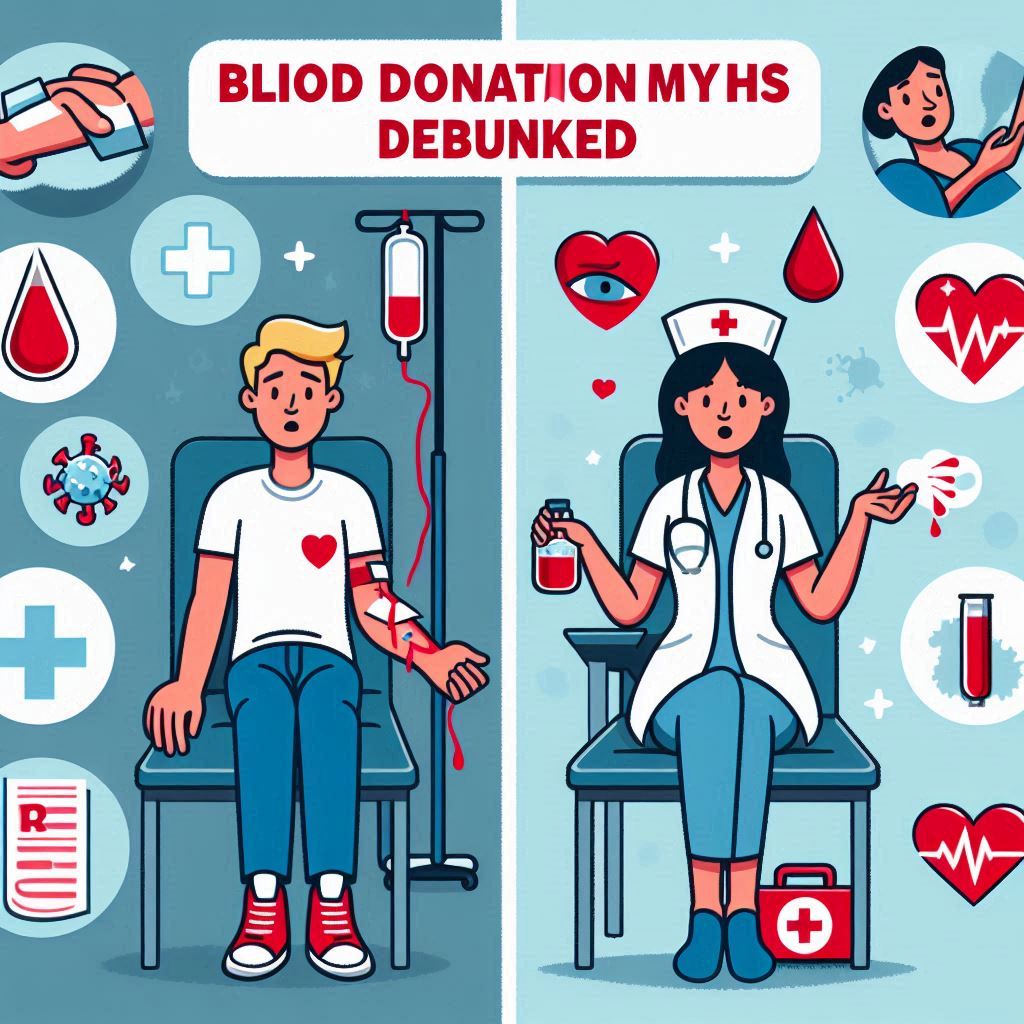Blood Donation Myths Debunked: Separating Fact from Fiction

Post By Admin
Blood donation is a life-saving act, but many people hesitate due to common myths and misconceptions. In this article, we’ll debunk some of the most prevalent myths about blood donation and reveal the real facts so you can donate with confidence. Fact: Many first-time donors are worried that blood donation is a painful process. The truth is, the sensation is similar to a small pinch when the needle is inserted. Once the needle is in place, most people feel no discomfort and the process is usually quick and smooth. Fact: Donating blood will not make you sick. The process is conducted under sterile conditions with new, single-use equipment, so there is no risk of contracting diseases. Additionally, most healthy individuals experience no side effects beyond possible mild dizziness, which can be managed by staying hydrated and resting. Fact: The average adult has about 10-12 pints of blood, and during a typical donation, only one pint is taken. Your body quickly replaces the lost blood within a few days, and plasma is replenished even faster. So, there is no harm to your health from donating. Fact: All blood types are needed, not just the rare ones! While certain blood types like O-negative are considered universal and in high demand, every blood type is crucial for treating patients in need. Donors of all blood types are encouraged to donate regularly. Fact: Being on medication does not necessarily disqualify you from donating blood. In fact, many medications are perfectly fine for donors, as long as you meet other health requirements. It's best to consult with the blood donation center staff to confirm eligibility based on your medication and condition. Fact: Vegetarians can absolutely donate blood! The key to eligibility is having healthy iron levels, which can be achieved with a balanced vegetarian diet rich in iron-containing foods like leafy greens, lentils, and fortified cereals. Fact: There is no upper age limit for donating blood as long as you are healthy. As long as you meet the basic health requirements and are feeling well, you can donate blood well into your senior years and continue to help others in need. Fact: The entire blood donation process, from registration to recovery, typically takes about 45 minutes to an hour. The actual blood donation itself usually lasts only 8-10 minutes. With such a small time commitment, you can easily fit it into your day and make a big impact.Blood Donation Myths Debunked: Separating Fact from Fiction
Myth 1: Donating Blood is Painful
Myth 2: You Can Get Sick After Donating Blood
Myth 3: I Don’t Have Enough Blood to Spare
Myth 4: Only Certain Blood Types Are Needed
Myth 5: You Can’t Donate Blood if You’re on Medication
Myth 6: Vegetarians Can’t Donate Blood
Myth 7: I’m Too Old to Donate Blood
Myth 8: Blood Donation Takes Too Much Time
Leave a comment